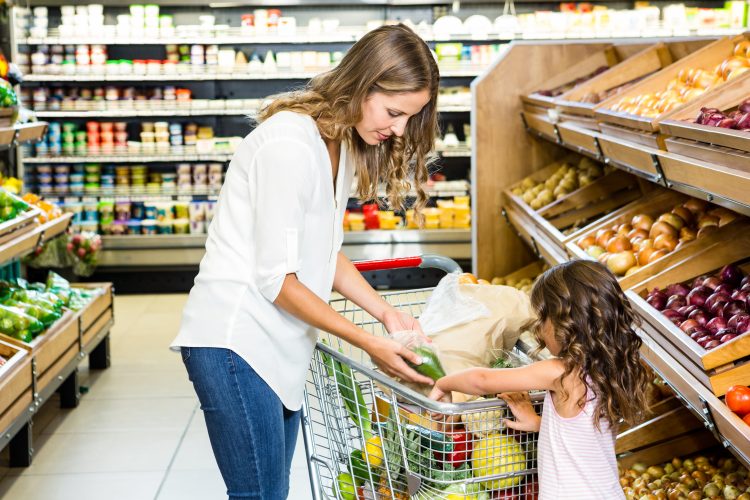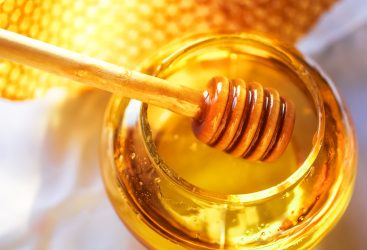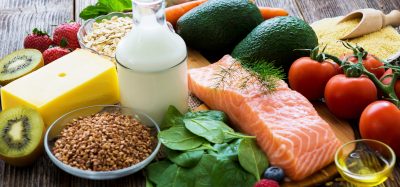How do we increase food integrity?
- Like
- Digg
- Del
- Tumblr
- VKontakte
- Buffer
- Love This
- Odnoklassniki
- Meneame
- Blogger
- Amazon
- Yahoo Mail
- Gmail
- AOL
- Newsvine
- HackerNews
- Evernote
- MySpace
- Mail.ru
- Viadeo
- Line
- Comments
- Yummly
- SMS
- Viber
- Telegram
- Subscribe
- Skype
- Facebook Messenger
- Kakao
- LiveJournal
- Yammer
- Edgar
- Fintel
- Mix
- Instapaper
- Copy Link
Posted: 11 February 2020 | Liz Colebrook | No comments yet
Liz Colebrook is Mars’ Global Scientific & Regulatory Affairs Director of Food Safety; here she explores the meaning of food integrity, how Mars is driving towards a safer, healthier, more sustainable world, and how industry must progress as a whole.


There is a broad spectrum of definitions for food integrity, including one from the Department for Environment Food & Rural Affairs (DEFRA) that defines it as: “The state of being whole, entire, or undiminished or in perfect condition”. Providing assurance to consumers and other stakeholders about the safety, authenticity and quality of European food (integrity) is of prime importance in adding value to the European agri-food economy.
Professor Chris Elliot of Belfast University has also offered a definition of food integrity: “[It means] the food we produce is safe; the food we produce is authentic; it is nutritious; the systems we use to produce our food are sustainable; our food is produced to the highest ethical standards, and we respect the environment and those who work in our food industry”.
As a privately-owned company, Mars thinks and plans in generations. We are committed to helping create a safe, healthy and sustainable world for our partners and the communities in which we operate. Put simply, at Mars, we believe if it is not safe, it is not food.
Integrity and trust
Integrity is about trust, and one important way to engender trust with consumers is to support robust regulation and demonstrate adherence to it.
In many countries – including the UK, USA and Australia – there are already regulations in place that prohibit the misrepresentation of food. The difficulty is that with the ever-improving testing and detection methods leading to diminishing limits of detection along with global food supply chains and e-commerce, defining food authenticity is complex and likely to become even more challenging.
That is why industry has a crucial role to play in shaping a regulatory environment that both protects consumers interests and is affordable and sustainable. One part of this involves open sharing of food safety knowledge and working together to identify risks and solutions to the long-term food safety issues impacting the global food supply chain. At the Mars Global Food Safety Centre (GFSC) we conduct original research and collaborate externally to exchange knowledge and insights in food safety to help ensure safe food for all. We currently have three key areas of focus, including food integrity, in which we have set ambitious targets for food integrity risk management, focused on developing tools and capabilities to mitigate food integrity challenges across the food industry and the global food supply chain. Programmes include developing appropriate tools and analytical methods necessary to support the prevention of food fraud and foreign material contamination risk.
The food integrity paradox
This raises a paradox: some forms of adulteration render the food unsafe, such as the adulteration of wine with diethylene glycol; whereas adulterating wine with potable water is no less fraudulent but significantly safer: is it better to have safe but fraudulent food than no food at all? Answering that question exceeds the scope of this discussion, but it highlights the important point that food fraud and food safety are two very different aspects of the supply chain, and both need to be considered from a regulatory perspective.
Liz Colebrook will be part of a panel session at New Food’s Food Integrity 2020 conference in March 2020. Interested to find out more about regulation and how it affects food integrity? Find out more here!
Detection methods
Increasing globalisation has lengthened supply chains, thereby increasing the vulnerability of raw materials and products to adulteration and fraud. In order to combat food fraud successfully, the food industry, along with its regulators, are reliant upon reliable, validated and reproducible detection methods, whether these be qualitative or quantitative.
It may be argued that the development of detection methods and their deployment should take priority over regulatory development, but detection and deployment tend to be after-event strategies and without regulation against which to hold transgressors to account, they have no ‘teeth’. Identifying and reducing vulnerabilities in supply chains maintains the integrity of supply and increases the consumer confidence that the revelation of food fraud destroys, often not only in the affected commodity, but potentially in all related items.


As part of the future ‘armoury’ against food fraud, genomics is also expected to play a key role and the IBM-Mars Consortium for Sequencing the Food Supply Chain is one example of a future-focused approach that seeks to enable critical breakthroughs in food safety by helping to drive global innovation in genomics and food and agriculture.
Regulation and harmonisation
Regulators are then faced with multiple challenges: being able to respond rapidly to new developments; predicting areas where fraud is likely to become an issue in the future; and endorsing sampling and test methodologies. This presents an on-going tension, since proportionate and well-constructed regulation takes time to develop (especially if scientific studies or opinions are required), and this can conflict with the pace of development in new manufacturing technologies and detection techniques.
It is also the case that regulation should not become a barrier to trade: global manufacturers, or even those simply exporting from one country or region to another are all too familiar with limits for additives or contaminants that vary across borders, often for no other reason than a limit was set historically that has never been challenged or reviewed. This will be of particular interest and concern to UK-based manufacturers in the coming months as the UK and European Union attempt to reach a trade deal that does not introduce unnecessary restrictions or barriers to trade.
Unless there are significant differences in consumption patterns between regions, levels that are demonstrably safe in one region should be safe in another – another reason that globally harmonised standards are required. To this end, both Codex and AOAC have initiatives for tackling food fraud: The Codex Committee on Food Import and Export Certification and Inspection (CCFICS) is discussing the development of Guidance on the Prevention of Food Fraud, whilst AOAC’s Food Authenticity and Fraud (FAF) programme focuses on identifying analytical tools to better locate and characterise the intentional and economically motivated adulteration of foods.
The future of food integrity – collaboration is key
In summary, regulators and regulations can provide the framework to increase food integrity, but only those engaged in the food industry can put the building blocks of trust and transparency in place through auditable quality systems, test methods and results.
At Mars, the world we want tomorrow starts with how we do business today. And that means a world where regulators, academia and our industry come together to share relevant data and critical insights to develop scientific capabilities that will promote trust and confidence from our consumers, and provide regulators with the science-based tools required for enforcement.
About the author
Liz Colebrook is Global Scientific & Regulatory Affairs Director of Food Safety at Mars, Incorporated, and has more than 25 years experience in food safety science and regulatory affairs. Liz graduated in Food Science at Reading University and began her food industry career in technical auditing and product development. After entering the world of regulatory affairs during her employment with H J Heinz, Liz joined Mars Petcare as a Legal and Regulatory Affairs Manager in 2001. During her 18 years with Mars, Liz has predominantly worked in the Scientific & Regulatory Affairs arena, completing a Masters in European Food Regulatory Affairs in 2003. In her current role she is responsible for the development of leadership strategy, knowledge and insights relating to food safety regulation.
Related topics
Contaminants, Environment, Food Fraud, Food Safety, Food Waste, Outbreaks & product recalls, Packaging & Labelling, Pathogens, Quality analysis & quality control (QA/QC), Regulation & Legislation, Supermarket, Supply chain, Sustainability, Technology & Innovation, Traceability









